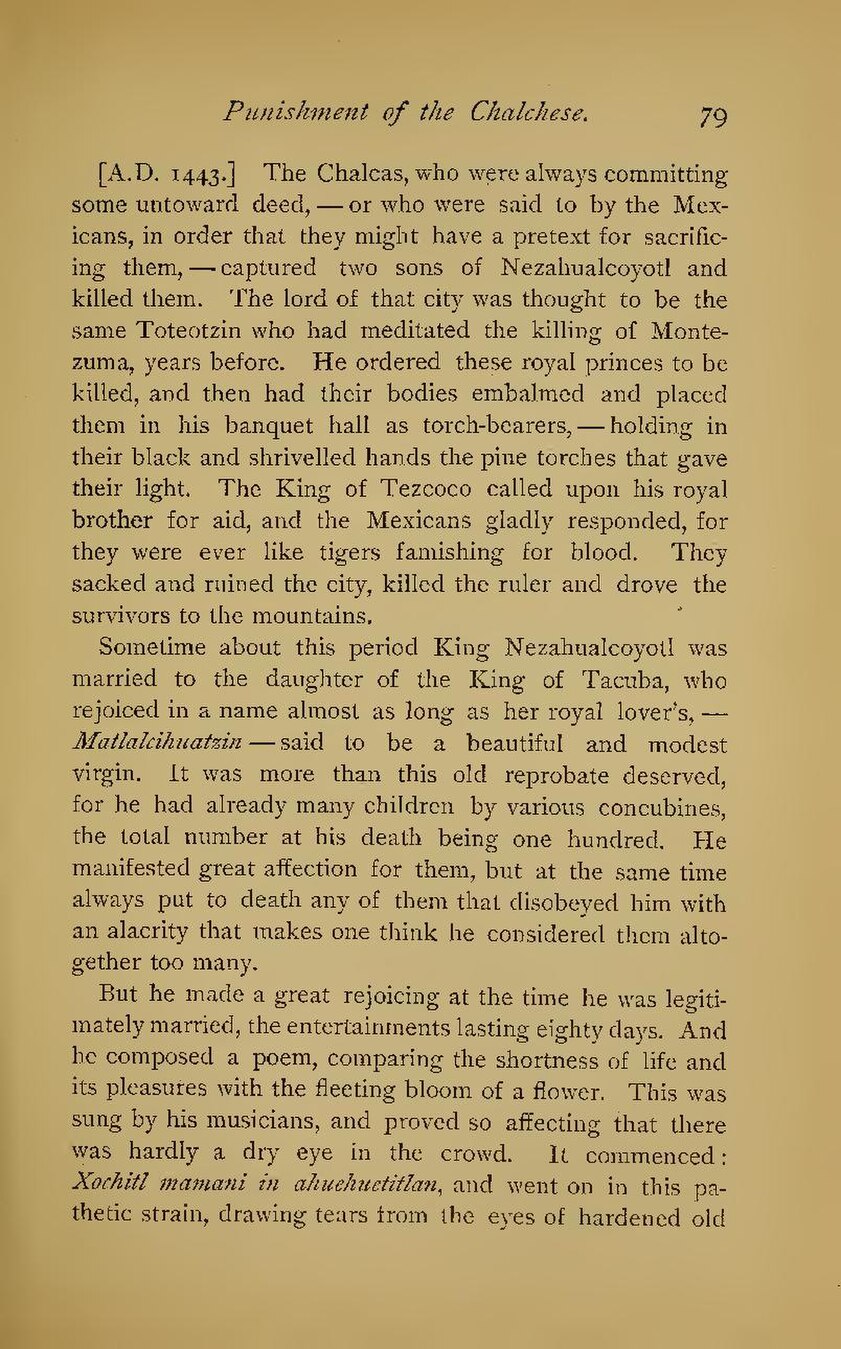[A.D. 1443.] The Chalcas, who were always committing some untoward deed,—or who were said to by the Mexicans, in order that they might have a pretext for sacrificing them,—captured two sons of Nezahualcoyotl and killed them. The lord of that city was thought to be the same Toteotzin who had meditated the killing of Montezuma, years before. He ordered these royal princes to be killed, and then had their bodies embalmed and placed them in his banquet hall as torch-bearers,—holding in their black and shrivelled hands the pine torches that gave their light. The King of Tezcoco called upon his royal brother for aid, and the Mexicans gladly responded, for they were ever like tigers famishing for blood. They sacked and ruined the city, killed the ruler and drove the survivors to the mountains.
Sometime about this period King Nezahualcoyotl was married to the daughter of the King of Tacuba, who rejoiced in a name almost as long as her royal lover's,—Matlalcihuatzin—said to be a beautiful and modest virgin. It was more than this old reprobate deserved, for he had already many children by various concubines, the total number at his death being one hundred. He manifested great affection for them, but at the same time always put to death any of them that disobeyed him with an alacrity that makes one think he considered them altogether too many.
But he made a great rejoicing at the time he was legitimately married, the entertainments lasting eighty days. And he composed a poem, comparing the shortness of life and its pleasures with the fleeting bloom of a flower. This was sung by his musicians, and proved so affecting that there was hardly a dry eye in the crowd. It commenced: Xochitl mamani in ahuehuetitlan, and went on in this pathetic strain, drawing tears from the eyes of hardened old
